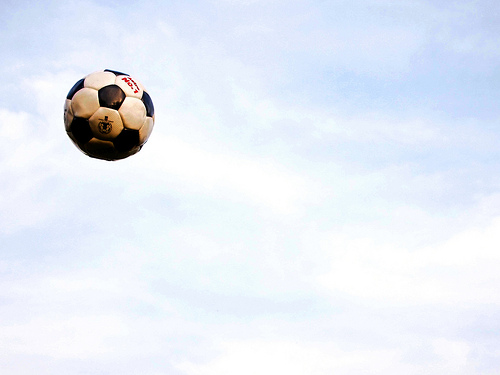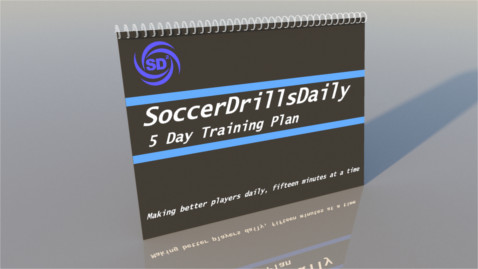
Earlier this week, in a very competitive game against the top team in our division, I was playing sweeper. This meant that I was the last player defending besides our goalkeeper. We were leading 3-2, and the other team kicked a long ball in my direction. It was an easy ball, and all I had to do was jump up and head the ball out of danger. Instead, I misjudged the height of the ball. It flew over my head, their forward ran past me and scored a goal. Instead of winning the game, we ended up tied 3-3. Now I don’t know what would have happened had I stopped that ball. We might have gotten scored on later, or we might not have. However, there is one thing I’m absolutely certain of – I made a mistake that directly cost our team a win.
Now I’m not writing this post because I’m feeling sorry for myself. Soccer is a fast, dynamic game, and mistakes happen. Nothing ever goes right ALL the time. The reason I’m writing this post is to talk about the right way to respond when you make a mistake. There are several steps you should take when things go wrong
Step 1 –
Don’t let it throw you off your game.
The vast majority of mistakes happen well before the end of the game. This means that after you make a mistake, there are still plenty of minutes left in the game that you have to play. If you let a mistake disrupt your confidence in your abilities or your game plan, this could cost you even more as the game goes on. Go out there and keep doing what has worked for you in the past (minus whatever led you to making the mistake) .
Step 2 –
Keep your emotions in check
After you make a mistake, you may be frustrated, sad, or angry. This is natural. However, you need to make sure you keep your emotions under control so they don’t cause you to make even bigger mistakes. If you go back out on the field angry, this could cause you to commit foolish fouls or make bad decisions. To get your emotions under control, take a deep breath, blow it back out, and focus not on what you did wrong, but what you’re going to do better next time. Focus your energy on what you can do better in the future.
Step 3 –
Learn from your mistake
Now that you’ve done something wrong, you can’t change it, because it’s already in the past. However, what you can do is figure out how you’re going to avoid making that mistake again. For example, my mistake was misjudging the height of the ball going over my head. To avoid making this mistake again, I made sure that I didn’t let a ball go over my head again. I did this by making sure that I kept plenty of space between myself and the ball, and being a little more careful about the way I approached the ball for the rest of the game.
Step 4 –
Come Back Stronger
As mentioned in item 2, between frustration and anger, you’re going to have a fair amount of emotional energy built up after you make a mistake. Channel this energy into playing harder and running faster. Use the mistake to come back stronger and smarter than you were before. By doing this, you’re turning something negative that happened into something positive, and this will help you improve both as a player and as a person.
Have you ever made a mistake that cost your team? How did you respond to it? Let me know in the comments below.
Photo Source: Negative space by APM Alex, on Flickr




